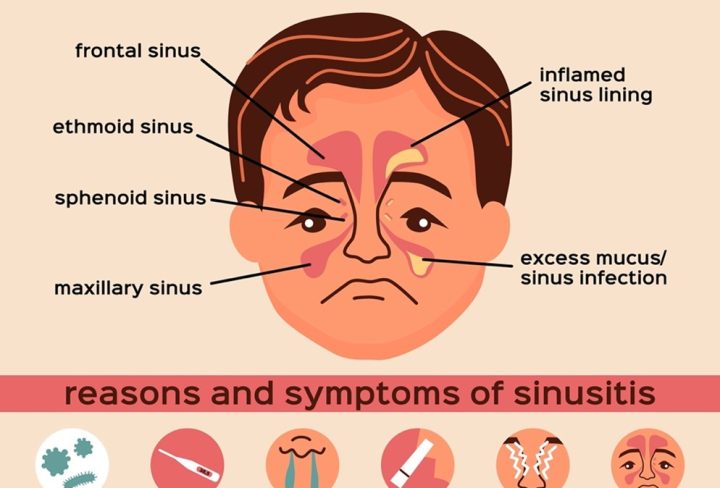Sinusitis, a common ailment that troubles a vast majority of people, manifests as a persistent inflammation of the sinuses leading to congested noses, headaches, and facial pain. Often mistaken for a prolonged cold, sinusitis is more than just a seasonal annoyance. It is a condition that affects daily functioning and requires proper understanding and management.
This blog aims to demystify sinusitis, offering insights into its causes, symptoms, and treatment options.
What is Sinusitis?
- Sinusitis occurs when the sinuses, air-filled spaces in the skull around the nose, become inflamed.
- This inflammation can block the sinuses, trapping mucus and air inside.
- This blockage can lead to infection and the characteristic symptoms of sinusitis.
- The condition can be acute, lasting up to four weeks, or chronic, persisting for months or even longer, requiring a nuanced approach to treatment.
Causes and Risk Factors
- The root causes of sinusitis include viral infections (common cold), bacterial infections, and, less commonly, fungal infections
- Allergens, pollutants, nasal polyps, and deviated nasal septum also contribute to the risk factors, exacerbating the likelihood of developing sinusitis
Recognizing the Symptoms
- Nasal congestion and difficulty breathing through the nose
- Thick, discolored nasal mucus
- Pain and tenderness around the eyes, cheeks, nose, or forehead
- Reduced sense of smell and taste
- Cough, which may be worse at night
Effective Treatment Strategies
Treatment for sinusitis varies depending on the severity and whether it’s acute or chronic. Strategies include:
- Nasal decongestants: to relieve nasal congestion and allow the sinuses to drain
- Saline nasal sprays: to rinse the nasal passages and ease nasal congestion
- Antibiotics: prescribed for bacterial infections, not viral causes
- Corticosteroids: to reduce inflammation in severe cases or for those with nasal polyps
- Surgery: for chronic cases unresponsive to medication, aiming to clear blocked sinuses
Preventive Measures and Lifestyle Adjustments
Adopting certain lifestyle changes can help manage and prevent sinusitis, including staying hydrated, using a humidifier, avoiding tobacco smoke and other pollutants, and practicing good nasal hygiene.
Understanding sinusitis and its impact is crucial for effective management and prevention. By recognizing the symptoms early and seeking appropriate medical advice, individuals can significantly reduce the discomfort associated with this condition and improve their quality of life.
Keywords: Sinusitis, nasal congestion, facial pain, nasal decongestants, saline nasal sprays, antibiotics, corticosteroids, chronic sinusitis, acute sinusitis, nasal hygiene, ENT specialists.


